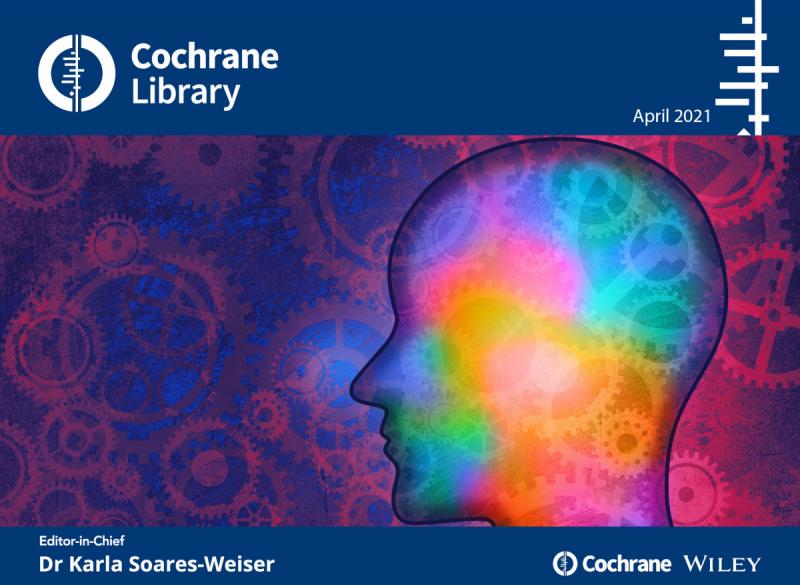
The Cochrane Library App presents the latest up-to-date evidence from the Cochrane Library in a convenient, easy to navigate format which provides you with relevant, accessible research, when you need it, from the world’s leading experts in evidence-informed health care.
All content in the app is free and new issues will download regularly.
Our monthly issues feature a hand-picked selection of Cochrane Systematic Reviews, specifically chosen by the Editor-in-chief. Abridged Cochrane Reviews provide the best possible tablet and phone reading experience and they are downloadable for reading offline. The Bookmark feature allows you to create your own special collection of Cochrane Reviews across issues. Additionally, the title page for every review includes a link to the full version of the review available on the Cochrane Library.

Hello, and welcome to the April 2021 issue of the Cochrane Library app.
This month’s edition includes diverse topics such as rapid, point-of-care tests for diagnosing COVID-19 infection, high-flow nasal cannulae for respiratory support in intensive care, interventions for self-harm in children and adolescents, psychosocial interventions for reducing parental substance misuse, wound cleansing for venous leg ulcers, zinc supplementation for improving pregnancy and infant outcome, antibiotics for secondary prevention of coronary heart disease, preventing thrombosis in organ transplant recipients, and strategies to improve retention in randomised trials. This edition also includes an editorial detailing the story of (hydroxy) chloroquine for treating COVID‐19.
Our main review this month is ‘Smoking cessation for improving mental health'. There is a common perception that smoking helps people to manage stress, and may be a form of 'self‐medication' in people with mental health conditions. However, there are biologically plausible reasons why smoking may worsen mental health through neuroadaptations arising from chronic smoking, leading to frequent nicotine withdrawal symptoms (e.g. anxiety, depression, irritability), in which case smoking cessation may help to improve rather than worsen mental health. Authors from the Cochrane Tobacco Addiction Group examined the association between tobacco smoking cessation and change in mental health.
The abridged versions of these reviews are available in this issue. Visit www.cochranelibrary.com to read the full versions.
Our monthly issues produced exclusively for the app feature a hand‐picked selection of Cochrane Systematic Reviews, specifically abridged to provide the best possible mobile reading experience. You can create your own special themed collection of Cochrane Reviews across issues in the app on topics such as occupational health by using the app’s Bookmark feature.
The title page for every review included in this and previous issues includes a link to the full version of the review available on the Cochrane Library at www.cochranelibrary.com
- Download the free Cochrane Library App from iTunes or GooglePlay today!

